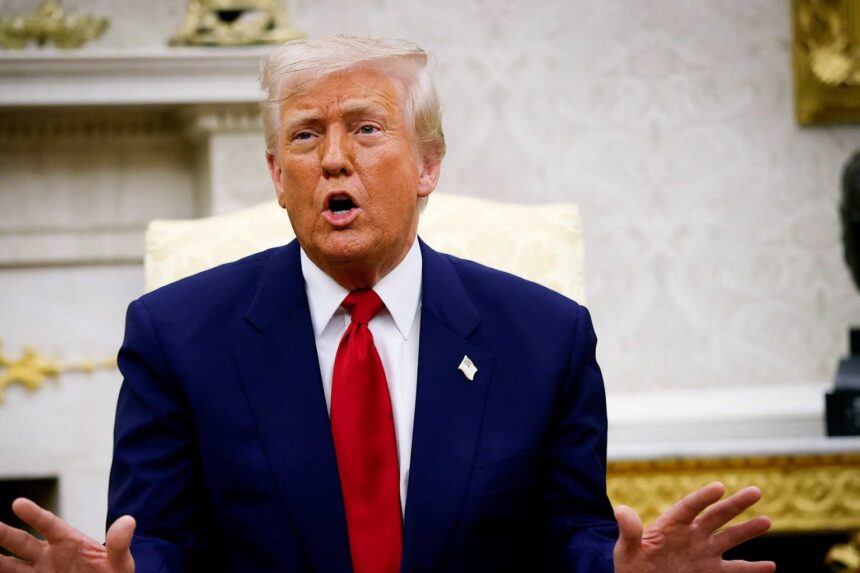Trump Threatens 50% Tariff on EU Imports
US President Donald Trump has issued a warning to the European Union, threatening to impose a 50 per cent tariff on imports starting June 1, 2025. This move has escalated tensions between Washington and the EU amidst ongoing trade negotiations.
Trump took to his social media platform, Truth Social, to express his frustration with the lack of progress in talks with the EU. He accused the EU of stalling discussions and proposed a “straight 50% tariff” as a solution.
The announcement sent shockwaves through financial markets, with stock futures on Wall Street experiencing a significant drop in response to the news.
If implemented, the proposed tariff would represent a substantial increase from the current baseline US import duty of 10 per cent on EU goods. This could further strain the already fragile trade relationship between the world’s largest economy and its biggest trading partner.
Trump’s latest threat comes on the heels of a series of tariffs announced last month that targeted various countries, including the EU. These measures included high duties on key sectors like automobiles, steel, and aluminium, unless the goods were produced in the United States.
The initial tariff announcement led to a market sell-off, prompting the White House to temporarily halt most of the new levies for 90 days to allow space for negotiations. However, the 10 per cent baseline duty remained in effect.
Negotiations with the EU have proven to be particularly challenging compared to other trade partners. The EU has threatened to retaliate with tariffs on US products worth nearly €100 billion ($113 billion) if a resolution to reduce American levies on European exports is not reached.
Trump’s criticism of the EU in his social media post reflects the strained nature of the transatlantic economic relationship. He accused the EU of taking advantage of the United States on trade and expressed frustration with the slow progress of negotiations.
This latest development marks another chapter in the ongoing trade tensions between the US and the EU, highlighting the complexities and challenges of international trade relations.








